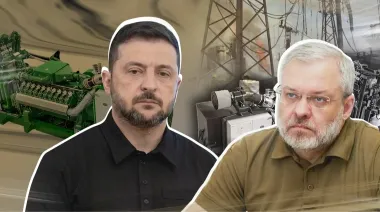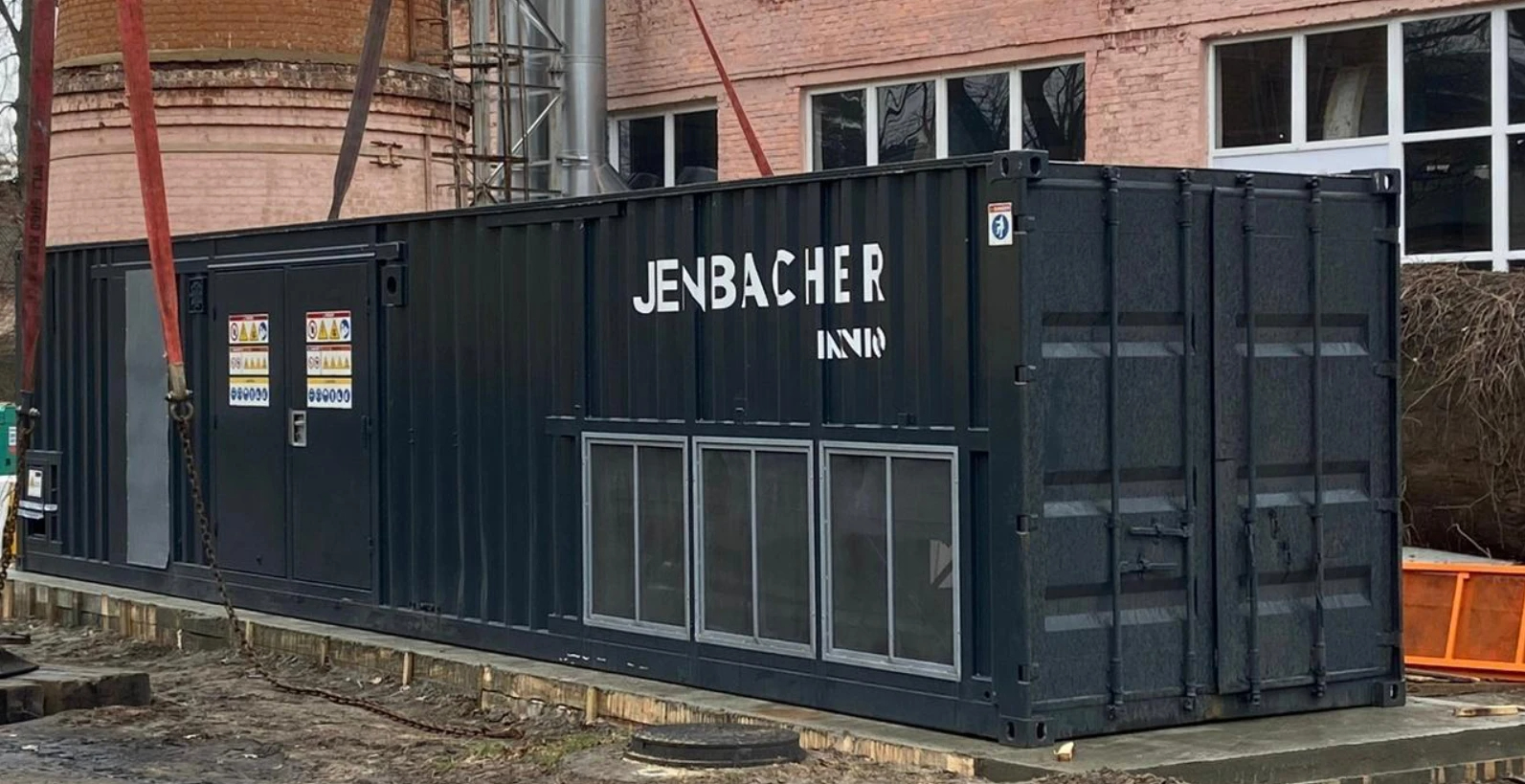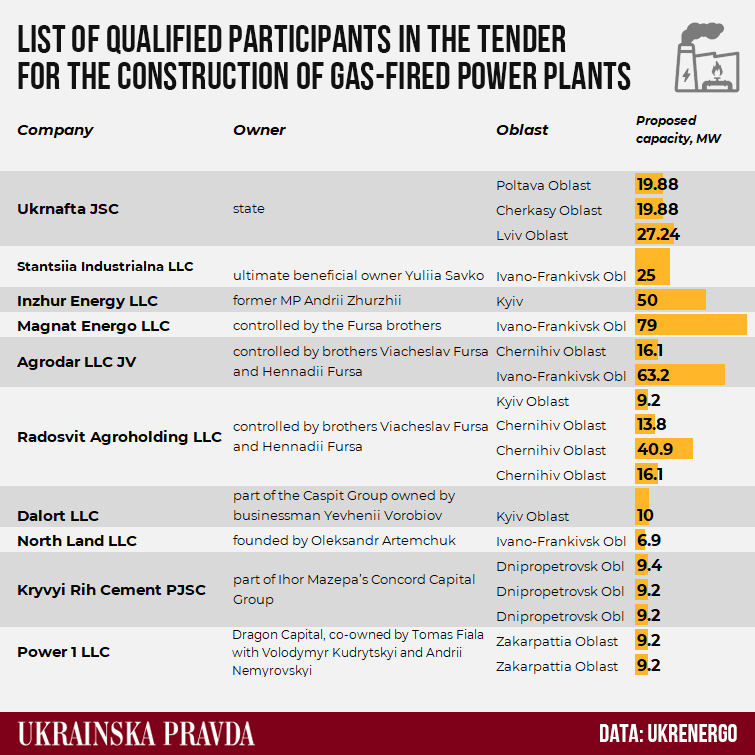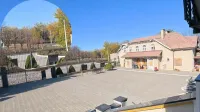Blackout wrapped up in an envelope: how Energy Ministry games left Chernihiv and Kryvyi Rih without extra power

The morning of 21 October was extremely challenging for the city of Chernihiv. After another large-scale and targeted Russian drone attack on Ukraine's energy system, the hometown of Prime Minister Yuliia Svyrydenko was plunged into a total blackout.
Russian forces had already struck energy facilities in Chernihiv Oblast and the northern parts of Kyiv Oblast in September, but back then power was restored relatively quickly. The attack on 21 October, however, made the situation far more dangerous.
Ukrainska Pravda recently published a detailed report on the protection of Ukraine's energy system and Russia's new tactic of gradually "switching off" the country region by region.
That same day, 21 October, a police patrol in Kyiv stopped the car of Volodymyr Kudrytskyi, former CEO of Ukrenergo – Ukraine's largest state-run power operator. An officer asked to see the Reserve+ app, designed for all Ukrainians liable for military service, on his phone, then grabbed the device and ran to his patrol car. Moments later, investigators from the State Bureau of Investigation (SBI) approached Kudrytskyi's vehicle and conducted a search – as has often been the case recently, without a court warrant.
The unlocked phone of the former Ukrenergo CEO quickly passed from the police officer's hands to those of the SBI agents.
At first glance, there seems to be no link between the events in Chernihiv and Kyiv. However, in fact, there is.
"I noticed that activity by law enforcement agencies would increase whenever I had to appear in public. Recently, my partners and I also announced a large distributed generation project, which gave me some media exposure. So I associate what's happening not with any procedural necessity but rather with certain messages someone is trying to send me," Kudrytskyi told Ukrainska Pravda.
The pace of these "messages" is striking. Just a day before the SBI search, Kudrytskyi told Ukrainska Pravda about a major energy project – the construction of over 400 MW of additional generation capacity – that was derailed by political manoeuvring under the then Energy Minister Herman Halushchenko. The project could have provided nearly 100 MW to Chernihiv Oblast, currently plunged into darkness, and about 30 MW near the president's hometown of Kryvyi Rih by the end of the year.
Kudrytskyi believes that Halushchenko's team likely blocked the project simply because they disliked the names of the winning bidders. As a result, instead of a new distributed generation system that could have significantly improved the situation in affected regions, the cities under attack are now sinking into the constant hum of diesel generators.
A box with an envelope inside, or Halushchenko's competition
In 2025, Ukraine finally moved towards what it should have done back in 2019: launching the large-scale construction of flexible, decentralised gas-fired generation, which is crucial amid constant attacks, power shortages and outages.
In June 2024, President Volodymyr Zelenskyy personally announced plans to build 1 GW of such generation capacity by the end of 2024, and another 4 GW in the coming years. The media would later name these plans "Zelenskyy's Gigawatts".
The idea involves so-called gas piston and gas turbine power plants. To put it simply, these are relatively small installations that can produce both electricity and heating by burning modest amounts of gas. Modern systems are twice as efficient as old Soviet ones because they consume less gas and generate more energy.

Another key advantage of these mini power plants is their ability to start up within minutes to cover peak demand in the morning or evening hours – times when Ukraine currently has to import expensive electricity from the EU or rely on even costlier emergency assistance from European partners to avoid blackouts.
"Mini power plants are good because they pick up quickly – in three minutes. For comparison, a nuclear unit takes three days to reach operational output. A thermal unit takes 8–12 hours from a cold state, or 30–90 minutes from a hot state," explained the then Prime Minister Denys Shmyhal in summer 2024, after Zelenskyy publicly underlined the importance of developing this energy sector.
Another major advantage is the fact that these stations are much easier to conceal from Russian drone and missile strikes because they are small and scattered across the country. As Russia continues to prioritise large targets like Ukrenergo substations as well as thermal and hydro power plants, a network of decentralised facilities could offer Ukraine a viable way forward.
The concept has attracted interest from both the government and business. Following the EU model, the idea was to hold transparent tenders to select companies that would invest their own funds in new generation capacity in exchange for long-term contracts and stable returns.
Since the time of Volodymyr Hroisman's government, an approved resolution on the procedure for such tenders has been sitting in government folders. The idea was as follows: the system operator – Ukrenergo – makes calculations on how much and in which territory generation is lacking, and then announces the corresponding selection of projects for construction.
Companies would submit bids, competing over who would ask the state for the lowest compensation per megawatt of installed capacity. The winner would be the one ready to build for less.
In 2019, the document was approved, but not a single tender was held. At the time, the energy market was in turmoil over "green" tariffs, the metallurgical lobby blocked price rises, and the state lacked the resources even for routine payments, let alone compensation for new power plants. The idea was simply shelved.
It resurfaced in 2024 when Ukrenergo launched the first auctions for the construction of distributed generation facilities. The scheme was even simpler than under Hroisman: companies competed on an electronic platform for five-year contracts rather than for "compensation".
Winning companies secured stable agreements, which enabled them to obtain bank loans for the construction of new facilities.
The state, in turn, gained new generation capacity without additional expenditure. Moreover, companies agreed to offer discounts, allowing Ukrenergo to procure services 30-40% cheaper. The model seemed to be working.
However, following the controversial leadership shake-up at Ukrenergo, the Ministry of Energy, then headed by Herman Halushchenko, abruptly decided: "We will hold our own competition – and a much better one".
To launch this process, officials dug out the old regulation adopted during Hroisman's tenure, made minor adjustments, and in January 2025 announced a tender for the construction of 700 MW of new gas-fired generation facilities.
The winners were to be selected not by an electronic system but by a special commission of seven state representatives, who, during the proposal review, were quite literally pulling piles of technical documents out of Nova Poshta (Nova Post) boxes.
Despite the excessive bureaucracy, business interest in the tender proved strong. More than 10 participants entered, offering to build over 400 MW of new capacity. The majority of them were entirely new players in Ukraine's energy market.
A tender where the winners lost
While the technical stages of the tender were under way, the process initially moved at a brisk pace.
On 2 April, the commission opened new boxes containing two envelopes: one with the technical documentation, where bidders outlined the technical details of their projects, and another with their price proposals.
During the technical stage, three companies were disqualified for failing to meet the requirements: one was under sanctions, and the other two lacked sufficient experience and documentation. Fourteen projects advanced to the next round.

A week later, on 7 April, the commission opened the envelopes containing the price proposals and began assessing which bids offered the most favourable terms.
Four days later, on 11 April, the commission recorded its decision on the winning bidders in a draft protocol.
At this point, the proposals submitted by Ukrnafta, Dalort and Inzhur Energy were rejected. All three were disqualified on largely procedural grounds: the companies incorrectly stated their prices in the final bids. They were required to indicate the cost per megawatt of capacity, not the total cost of the project as Dalort and Inzhur had done. Ukrnafta, meanwhile, listed its price excluding VAT rather than including it.
Crucially, the members of the commission never signed the protocol confirming the winners, and to date it remains unavailable to the public. All other stages of the tender, however, have been recorded and the meeting records are published on Ukrenergo's official website.
On 22 April, the commission convened again to review complaints from participants – despite the fact that the tender regulations contain no such provision. In fact, the rules clearly state that any amendments after the opening of price proposals are prohibited.
Nonetheless, the commission announced a one-week pause and reconvened on 29 April, hearing arguments from the disqualified companies about "technical errors" and "ambiguous wording" – before adjourning once again. For six months.
The formal pretext for the "pause" was a complaint lodged by the state-owned company Ukrnafta with the Antimonopoly Committee of Ukraine (AMCU) regarding the commission's actions. Why the company appealed to the AMCU remains unclear – they might just as well have sent their complaint to the National Opera, which has about as much relevance to the tender.
What is clear is that the entire process has been frozen for six months – enough time to have completed the construction of all the proposed projects.
Informally, several participants in the tender have been told through intermediaries close to Herman Halushchenko's team that the former energy minister was "unhappy" with the list of winners.
"Herman was furious when among the winners appeared a joint project between Dragon Capital (owned by Tomáš Fiala, who is also the owner of Ukrainska Pravda – ed.) and Volodymyr Kudrytskyi, whom Halushchenko had been trying to force out of Ukrenergo. Add to that Ihor Mazepa, whose actions brought the Office of the Ukrainian President into conflict with the entire business community, and Ihor Tynnyi's people, when Tynnyi often doesn't mince his words about Halushchenko. So they decided to torpedo the tender," a source in the energy sector told European Pravda off the record.
The absurdity of the complaints used to stall the process has even been acknowledged by the Antimonopoly Committee of Ukraine (AMCU), which as early as 10 July refused to consider Ukrnafta's appeal.
***
"AMCU has gone silent. Herman is no longer minister, his deputy (Iurii) Sheiko, who chaired the commission, has also been dismissed from the government. The new leadership at the Ministry of Energy is afraid to take on this story. The President's Office wanted to pin everything on the Cabinet of Ministers, saying it had adopted the first resolution on such tenders, so let Svyrydenko cancel it. But why would she?" one of the tender participants said, describing the government's indecisiveness.
Since 11 April, the protocol has still not been signed, the winning bidders have not received their contracts, and no new generation facilities are being built. The stance of the new energy ministry team can be seen from the sterile, detail-free and non-committal replies the ministry sent to participants – copies of which European Pravda has had the opportunity to study.
"The saddest story is in Chernihiv," said another participant in the suspended tender. "A local businessman from the agricultural sector believed in the idea. While all this nonsense under Herman dragged on, he started building with his own money and has almost finished his projects. But if he connects them and begins operating, he'll lose the compensation promised under the tender, since it only applies to new generation. And he'll also lose his deposit – €100,000 to take part in the tender plus €1,000 per megawatt."
"He planned to build close to 100 MW. That would have genuinely helped the city and the oblast. But now it won't," the businessman concluded.
Authors: Mykola Topalov, Roman Romaniuk, Ukrainska Pravda
Translation:Myroslava Zavadska and Ganna Bryedova
Editing: Susan McDonald










